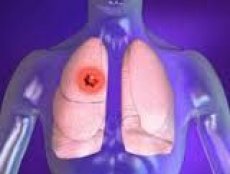Medical expert of the article
New publications
Epigenetic therapy inactivates cancer-causing gene
Last reviewed: 01.07.2025

All iLive content is medically reviewed or fact checked to ensure as much factual accuracy as possible.
We have strict sourcing guidelines and only link to reputable media sites, academic research institutions and, whenever possible, medically peer reviewed studies. Note that the numbers in parentheses ([1], [2], etc.) are clickable links to these studies.
If you feel that any of our content is inaccurate, out-of-date, or otherwise questionable, please select it and press Ctrl + Enter.

'Epigenetic' combination therapy may restore activity of anti-cancer gene in late-stage lung cancer. Scientists have tested a new type of treatment aimed at suppressing the activity of a gene that promotes the growth of cancer cells.
A small clinical trial conducted by a scientist at the Johns Hopkins Kimmel Cancer Center showed promising results.
The study involved 45 patients with late-stage non-small cell lung cancer. They received two combinations of drugs whose mechanism of action was to activate anti-cancer genes. The survival of patients undergoing this treatment increased by 2 months, and 2 patients experienced complete remission of the disease, despite the lack of effect from previous standard therapies.
The results of the study were published in the journal Cancer Discovery.
The patients were treated with two drugs - azacitidine and entinostat. The mechanism of action of these drugs is as follows: azacitidine removes methyl groups from genes, and entinostat inhibits the deacetylation of histones. All this helps suppress the activity of the gene that promotes the growth of cancer cells.
"We hope these results will prompt a larger, more in-depth clinical trial to study this drug combination," says Charles Rudin, MD, professor of oncology at Kimmel Cancer Center and the project's leader.
This is one of the first studies to show promising results for "epigenetic" cancer treatments.
Johns Hopkins has previously used this drug combination in leukemia patients. Lab tests have shown that epigenetic treatments do not directly kill cancer cells, but rather reprogram gene expression so that cancer cells lose their ability to grow uncontrollably and uncontrollably.
A normal cell has a certain set of gene expression, in which some genes are active and some are inactive. Disruption of this balance often leads to the development of cancer. Cancer cells constantly undergo mutations, which makes treatment with existing drugs ineffective. However, tumor development can be influenced by epigenetic suppression of the activity of genes that provoke the development of cancer cells.
"It's worth noting that epigenetic therapy enhanced the effects of chemotherapy treatment and made the tumors more sensitive to subsequent standard treatments," says Beilin.

